Discover the profound implications of El Roi, the God who sees, and how His omnipresence influences our daily lives and spiritual understanding.
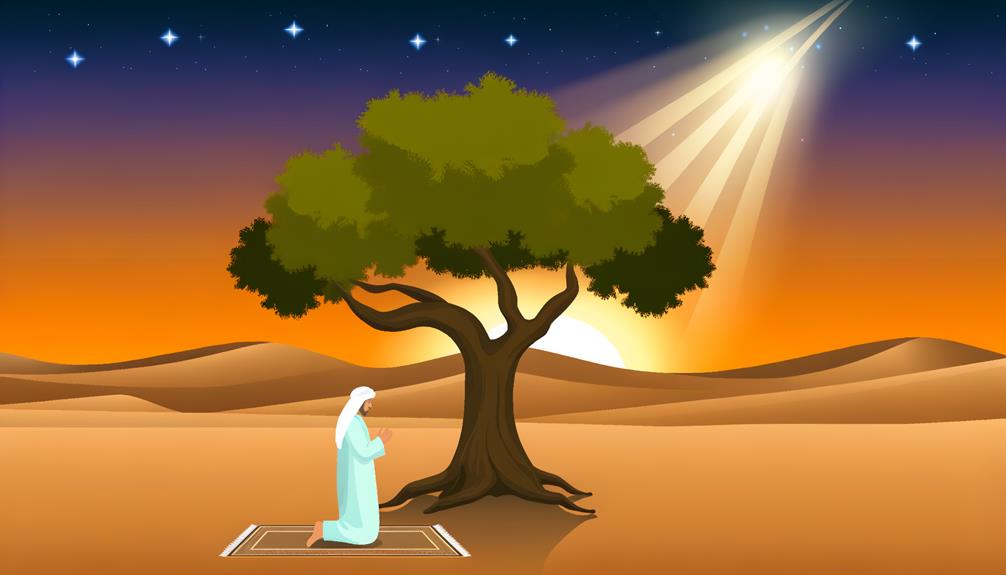
El Roi in the Bible
In the Bible, El Roi, translating to "the God who sees," is deeply explored in Genesis during Hagar's wilderness encounter. As you navigate her story, you'll find that El Roi signifies God's keen awareness and intimate oversight amidst human anguish. This divine visibility isn't merely an act of observation but a profound involvement in personal tribulations. The theological underpinnings extend beyond Genesis, with Psalm 33:13-15 underscoring God's constant vigilance. Knowing El Roi as a witness and responder to human condition not only comforts but mandates a moral awareness. There's much to uncover about how this impacts your spiritual and ethical consciousness.
Key Takeaways
- El Roi is a biblical name for God meaning "the God who sees me," highlighting divine awareness.
- First appears in Genesis 16 during Hagar's encounter with God in her distress.
- Symbolizes God's omnipresence and omniscience, showing He is aware of all human conditions.
- Offers spiritual comfort and assurance, affirming that no one is invisible to God.
- Influences ethical behavior and personal spirituality by emphasizing God's constant vigilance.
The Story of Hagar
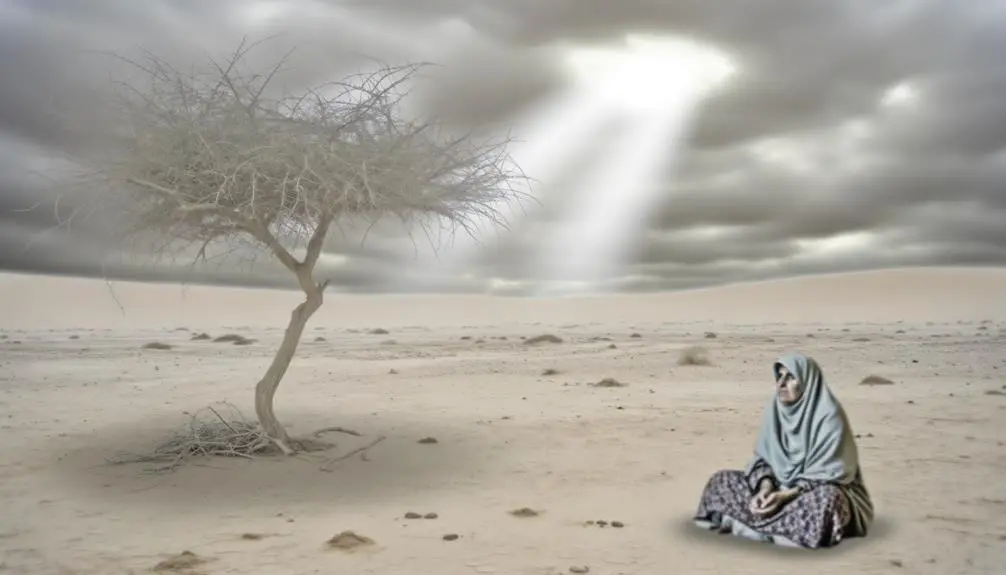
In the account of Hagar within the biblical narrative, you'll find a profound exploration of themes such as divine visibility and human suffering. Hagar's story, a tale of struggle and survival, unfolds as she navigates the harsh realities of being an outsider within Abraham's household. Her resilience is palpable; she endures mistreatment and isolation, yet manages to forge a path forward, driven by necessity and the will to protect her son, Ishmael.
You must consider how Hagar's experiences frame her as a symbol of enduring strength. When she is cast into the wilderness, her situation seems bleak, yet it is here that her resilience is fully realized. The wilderness, a place of desolation and despair, paradoxically becomes a site of divine encounter and promise. This juxtaposition highlights not only her personal strength but also underscores a pivotal moment concerning Ishmael's future.
Ishmael, her son by Abraham, is promised to father a great nation. This promise, delivered during moments of intense personal crisis, serves as a critical juncture in the narrative. It not only assures Hagar of her son's survival but also foreshadows the significant role Ishmael will play in the lineage of nations. Therefore, Hagar's story is not just about survival but also about the foundational impacts of her and her son's lives on future generations.
Meaning of El Roi
El Roi, translated as 'the God who sees me,' profoundly encapsulates the divine recognition and comfort extended to Hagar during her deepest despair. This designation isn't merely a title; it's a declaration of divine perception, acknowledging the visibility and value of individuals who might otherwise feel overlooked or marginalized. As you explore its etymology, 'El' signifies 'God' in Hebrew, while 'Roi' derives from the verb 'ra'ah,' meaning 'to see.' Therefore, El Roi conveys a powerful expression of God's ability to see the plight of every individual.
The cultural interpretations of El Roi vary, reflecting the diverse ways in which different communities perceive divine observation. In some traditions, this name emphasizes God's role as a vigilant overseer, ensuring justice and protection for the oppressed. In others, it's seen as a reflection of God's intimate involvement in personal struggles, offering solace and support in times of need. This nuanced understanding enriches the biblical narrative, inviting you to contemplate how divine sight might influence your perception of spirituality and community. Analyzing El Roi within these contexts provides a deeper appreciation of its significance across various cultural and historical landscapes.
God's Omniscience Explored

You'll find that the concept of El Roi intricately portrays God's omniscience, highlighting His capacity to possess complete and universal knowledge. As you explore biblical references, such as Hagar's encounter in Genesis 16, you'll see explicit demonstrations of this divine attribute. These scriptures not only illuminate the extent of God's awareness but also shed light on the profound implications this has for believers, influencing their understanding and relationship with the divine.
Understanding Divine Knowledge
How does the concept of God's omniscience influence our understanding of divine knowledge in biblical texts? You're delving into a domain where divine perception and infinite awareness converge, reshaping our grasp of spirituality and scripture. This omniscience isn't just about God knowing everything; it's about a profound comprehension that permeates all existence, suggesting a deeper, more intricate engagement with humanity than you might have previously considered.
Aspect |
Description |
Impact on Interpretation |
|---|---|---|
Divine Perception |
God's ability to perceive all events |
Enhances depth of scriptural narratives |
Infinite Awareness |
God's endless understanding of all realities |
Provides a framework for absolute truth |
Interaction |
God's active involvement in the world |
Personalizes divine encounters in texts |
This table helps visualize how these elements of omniscience modify our biblical interpretations.
Biblical References Illustrated
Throughout the Bible, God's omniscience is vividly illustrated, providing key insights into His all-encompassing knowledge of past, present, and future events. This divine attribute is showcased through various scriptural imagery, each reflecting the cultural interpretations of the time. For instance, in the story of Jonah, you see God's foreknowledge of events unfurl as He predicts Jonah's actions and the eventual repentance of Nineveh. This not only emphasizes God's infinite awareness but also mirrors the ancient Near Eastern perspectives on divine justice and mercy. Similarly, in Psalms, the descriptions of God's omnipresence and foreknowledge serve to comfort and assure the faithful within their cultural context, illustrating a God who is intimately involved in the human experience.
Implications for Believers
Understanding God's omniscience can profoundly impact a believer's faith and daily life, fostering a deeper trust in divine providence. When you grasp that God, termed as El Roi, sees all and knows all, it's not just about surveillance but about profound care and involvement in your life. This realization offers immense divine comfort, especially in times when you feel unseen or misunderstood. It reassures your faith, knowing that your challenges and joys are equally visible to God. This knowledge should not lead to fear but to liberation, as you understand that nothing escapes God's notice. Consequently, this omnipresent oversight invites you to live openly and honestly, enhancing your spiritual growth and deepening your relationship with the divine.
Biblical References to El Roi
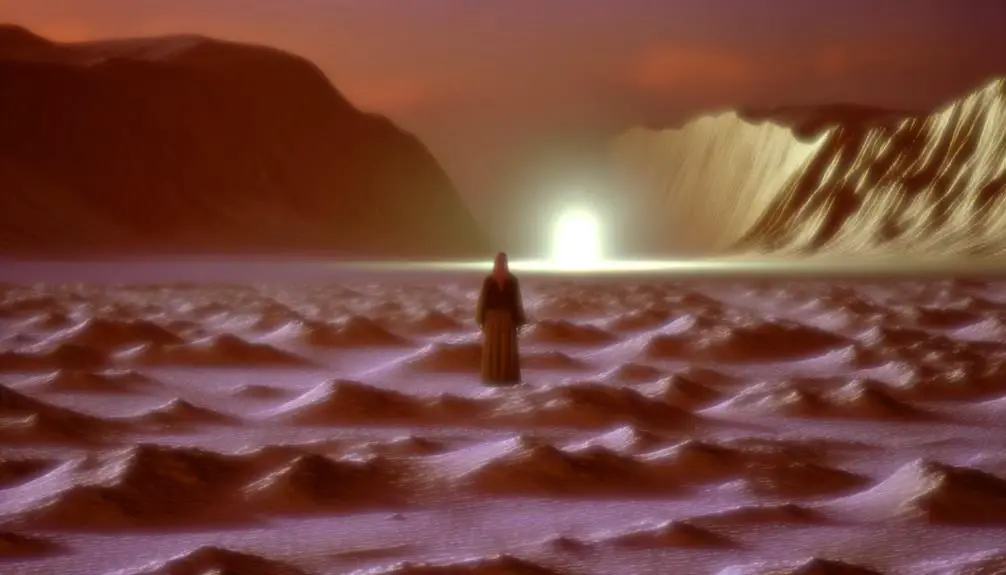
Where in the Bible can you find references to El Roi, the God who sees? The most significant mention is found in Genesis 16, where Hagar, the Egyptian servant of Sarai, encounters God in the wilderness. In her distress, having fled from mistreatment by Sarai, Hagar meets the angel of the Lord by a spring in the desert. It is here that she calls the name of the Lord who spoke to her El Roi, “You are the God who sees me.” This declaration marks a profound divine encounter, highlighting a personal recognition of God's omnipresence and care.
This scriptural context isn't merely an isolated incident but serves as a theological anchor throughout the scriptures, emphasizing God's ongoing engagement and visibility into human affairs. For instance, the Psalms frequently echo the sentiment that God sees and responds to human suffering and injustice. Psalm 33:13-15 explains that “The Lord looks from heaven; He sees all the sons of men; from His dwelling place He looks out on all the inhabitants of the earth.” This motif of divine surveillance assures believers of God's active presence and oversight, underscoring His attribute as El Roi, the God who continuously observes and intervenes in the world of His creation.
Personal Implications Today
While the concept of El Roi, the God who sees, emerged from ancient texts, its implications for you today are profound, influencing personal faith and the understanding of divine surveillance in contemporary life. This ancient name of God holds modern relevance as it intersects with today's technological and sociological landscapes, where privacy and visibility are at constant interplay. Understanding El Roi as a deity who observes but also provides spiritual comfort can reshape how you perceive everyday challenges and your reactions to them.
Here are several ways in which the recognition of El Roi affects personal spirituality and daily life:
- Spiritual Assurance: Knowing that you're constantly under the watchful eye of El Roi can bring a deep sense of safety and spiritual comfort, especially during times of loneliness or uncertainty.
- Ethical Behavior: The awareness of divine surveillance encourages a more conscientious approach to ethical decisions, promoting integrity even in private.
- Prayer Life: It enhances the personal and intimate nature of prayer, as you're engaging with a God who is both omnipresent and deeply involved.
- Coping with Suffering: In moments of suffering, the comforting aspect of El Roi provides a profound source of solace, affirming that no pain goes unseen.
- Community Interaction: This belief influences how you interact within your community, fostering a culture of mutual respect and empathy, knowing everyone is equally observed by the divine.
These elements highlight the enduring relevance and multifaceted impact of embracing El Roi in your personal faith journey today.
Theological Significance

As you explore the theological significance of El Roi, consider how His attributes, as depicted in scripture, shape and inform the Christian understanding of divine surveillance and benevolence. The characterization of El Roi as a God who sees not only underscores His omnipresence but also profoundly impacts believers' sense of spiritual assurance and moral responsibility. This attribute fosters a unique relational dynamic between the divine and the devout, influencing both individual faith practices and communal religious identity.
El Roi's Attributes
In understanding El Roi, one recognizes His profound theological significance as the omnipresent God who sees and responds to the plight of His people. El Roi's attributes go beyond mere observation; they embody the Divine Presence that is always with you. As a Compassionate Watcher, His gaze is not passive but deeply involved in the human experience, providing comfort and guidance even in moments of deep distress.
- Omnipresence: El Roi is everywhere, witnessing all human action and emotion.
- Omniscience: He knows every circumstance and intention, reflecting His profound wisdom.
- Compassion: His observations are coupled with deep empathy for human suffering.
- Responsiveness: Unlike distant deities, El Roi acts in response to what He sees.
- Justice: His sight leads to righteous action, ensuring moral balance is maintained.
Impact on Believers
Understanding the impact of El Roi on believers reveals how this perception of a watchful, responsive deity profoundly shapes their spiritual lives and ethical behaviors. When you grasp that El Roi sees you in your entirety, it brings immense spiritual comfort, knowing you're never beyond divine observation. This awareness isn't merely comforting; it's transformative. It reinforces faith by embedding a sense of accountability and purpose in your daily actions. You're likely to aim for greater ethical standards, driven by the belief that El Roi's omnipresence includes a moral expectation. Additionally, this continuous divine engagement offers a unique source of strength and resilience during times of personal trials, enhancing your spiritual endurance and deepening your relational trust in God.
Frequently Asked Questions
How Is El Roi Depicted in Other Religious Texts Outside the Bible?
You're diving into an intriguing comparative analysis. Other religious texts rarely mention El Roi, but through interfaith dialogues, a richer, detailed understanding of this figure's portrayal across cultures might be uncovered.
Are There Any Popular Artworks Inspired by El Roi?
You'll find various artistic interpretations inspired by El Roi, featuring rich visual symbolism. These artworks explore themes of divine vision and perception, offering a profound examination of spiritual oversight and care.
What Are Common Misconceptions About El Roi?
You might think divine visibility guarantees clarity, yet misconceptions persist. Common errors about El Roi stem from misinterpretation origins, often blurring the true nature of visibility and divine recognition in historical texts.
How Do Different Denominations Interpret El Roi's Role?
Different denominations interpret El Roi's role through varied theological perspectives, reflecting their broader denominational teachings. You'll find nuanced, often scholarly, debates detailing how each tradition understands this aspect of their faith.
Has El Roi Influenced Any Modern Cultural Expressions or Idioms?
As a ripple across a pond, El Roi's influence touches contemporary music and fuels theological debates. You'll find its echoes in lyrics and discussions, shaping modern cultural expressions with ancient, enduring whispers.

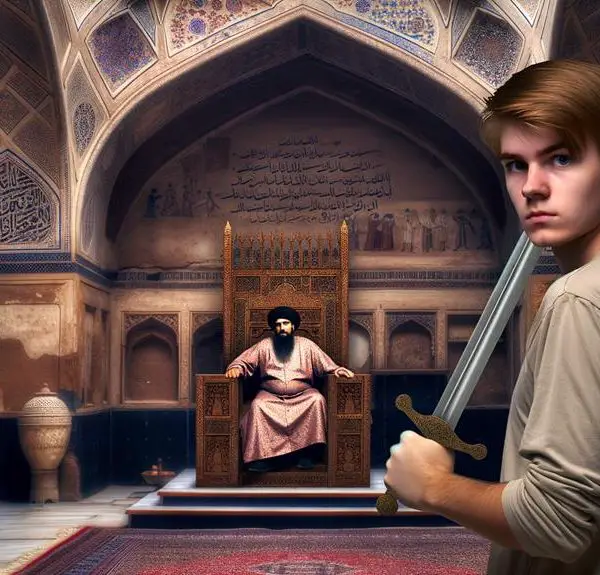
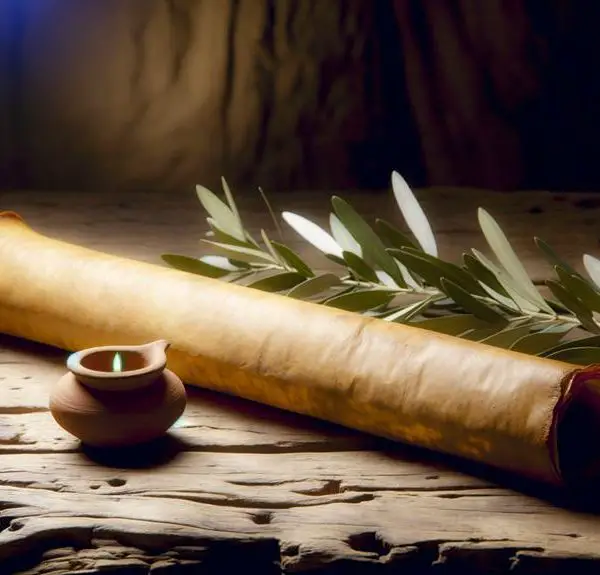
Sign up